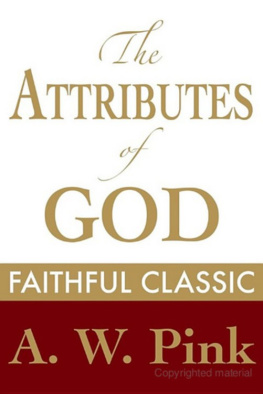Pink Tax and the Law
The emergence of the terms pink tax and tampon tax in everyday language suggests that women, who already suffer from an economic disadvantage due to the gender wage gap, are put in an even more detrimental position by means of discriminatory consumption taxes. This book is the first conducting a legal analysis to establish to what extent this public perception is accurate.
Does the practice of pink tax effectively amount to a tax in the legal sense? Does the so-called tampon tax genuinely constitute an anomaly within the general consumption tax system? Most importantly, can these two taxes be legally qualified as discriminatory?
This book provides scientific answers to these questions. It first cuts through the existent information clutter by elucidating the pertinent economic, sociological and psychological components of the practices referred to as pink tax and tampon tax. It then proceeds with a thorough legal analysis of all relevant aspects to determine whether women are indeed subject to discriminatory consumption taxes.
It is well-established that women earn less than men. This book investigates if they simultaneously pay more due to discriminatory consumption taxes.
Dr. Alara Efsun Yazcolu is an assistant professor and an attorney at law. She is specialized in tax law and sports law. She worked formerly as a senior attorney at PwC Turkey, as a legal advisor at Oberson Avocats (Switzerland) and as a teaching and research assistant in tax law at the University of Geneva (Switzerland). She has publications on various aspects of tax law and sports law, including a co-authored practical cases book (Droit fiscal suisse et international: Recueil de cas pratiques) published by Helbing Lichtenhahn Verlag.
Pink Tax and the Law
Discriminating Against Women Consumers
Alara Efsun Yazcolu

First published 2018
by Routledge
2 Park Square, Milton Park, Abingdon, Oxon OX14 4RN
and by Routledge
711 Third Avenue, New York, NY 10017
Routledge is an imprint of the Taylor & Francis Group, an informa business
2018 Alara Efsun Yazcolu
The right of Alara Efsun Yazcolu to be identified as author of this work has been asserted by her in accordance with sections 77 and 78 of the Copyright, Designs and Patents Act 1988.
All rights reserved. No part of this book may be reprinted or reproduced or utilised in any form or by any electronic, mechanical, or other means, now known or hereafter invented, including photocopying and recording, or in any information storage or retrieval system, without permission in writing from the publishers.
Trademark notice: Product or corporate names may be trademarks or registered trademarks, and are used only for identification and explanation without intent to infringe.
British Library Cataloguing-in-Publication Data
Names: Yazcolu, Alara Efsun, author.
Title: Pink tax and the law : discriminating against women consumers / Alara Efsun Yazcolu.
Description: Abingdon, Oxon [UK] ; New York, NY : Routledge, 2018. | Includes index.
Identifiers: LCCN 2018014365 | ISBN 9781138597297 (hardback)
Subjects: LCSH: Sex discrimination against womenLaw and legislation. | WagesSex differences. | Taxation of articles of consumptionLaw and legislation. | Sales taxLaw and legislation. | Women consumersLegal status, laws, etc. | Consumer protectionLaw and legislation. | Womens rights. | Feminine hygiene products.
Classification: LCC K3243 .Y39 2018 | DDC 343.05/5082dc23
LC record available at https://lccn.loc.gov/2018014365
Library of Congress Cataloging-in-Publication Data
A catalog record for this book has been requested
ISBN: 978-1-138-59729-7 (hbk)
ISBN: 978-0-429-48697-5 (ebk)
Typeset in Times
by Apex CoVantage, LLC
To my mother, Glbin Yazcolu
And for women
Contents
CEDAW | The Convention on the Elimination of All Forms of Discrimination Against Women |
Directive 2006/112 | Council Directive 2006/112/EC of 28 November 2006 on the common system of value added tax, OJ L 347 of 11 December 2006 |
EU | European Union |
GST | Goods and services tax |
OECD | Organisation for Economic Co-operation and Development |
UK | The United Kingdom |
UN | United Nations |
US | United States of America |
VAT | Value-added tax |
WSSCC | Water Supply & Sanitation Collaborative Council |
I would like to express my deepest gratitude to:
- Hazal Insu Trker for her assistance during the initial research process.
- Brianna Ascher, Siobhn Poole and Nicola Sharpe for their precious support in the preparation of this manuscript.
- My parents, Glbin and Yusuf Yazcolu, for their constant encouragement and moral support.
Humankind is composed of two sexes, called woman and man. Is it conceivable for this group to be improved as a whole by the mere improvement of one part, while the other part is neglected? Is it possible for the half of a mass to soar into the skies as long as its other half is chained to the ground?
Mustafa Kemal Atatrk
Women earn less than men, and not only due to lack of proper education, heavy burden of unpaid housework they mostly carry alone, low-skilled (and thereby low-wage) jobs that are made predominantly available to them or gender stereotypes constantly undermining their qualities while inflating their flaws. Women earn less even when they overcome all the social, economic and psychological disadvantages, work in high-skilled jobs and provide services, the quality of which is considered to be equal to the ones provided by men. This phenomenon is referred to as the gender wage gap. As established by the indicators prepared by the OECD,
The emergence of the terms pink tax and tampon tax in everyday language suggests that women may also be paying more than men. The terms refer to the additional amounts paid by women to purchase goods and services that are substantially similar to the ones acquired by men at lower prices and to the consumption tax collected on womens sanitary protection products, which are deemed to be luxury items.
To examine whether the public perception is accurate, this book begins by elucidating the proper terminology that needs to be used in the analysis of the two taxes. First, a demarcation of the terms gender and sex, which are commonly, yet inaccurately, used as equivalents, is made. The distinction is important, especially in the area of discrimination (Chapter II). Second, the different terms used in everyday language to designate the taxes concerned are examined one by one. It is established that a variety of terms are used interchangeably in relation to two different practices which cannot possibly be designated by the same name and/or regrouped under an umbrella term. The terms pink tax and tampon tax are deemed to be more appropriate than the other terms used, i.e. women tax and gender tax. It is stated that pink tax should be exclusively used to refer to the additional amounts collected from women consumers during the purchase of a wide range of products and services available on the market and tampon tax should be adopted as the proper term designating the consumption tax levied on womens sanitary protection products (Chapter III).













